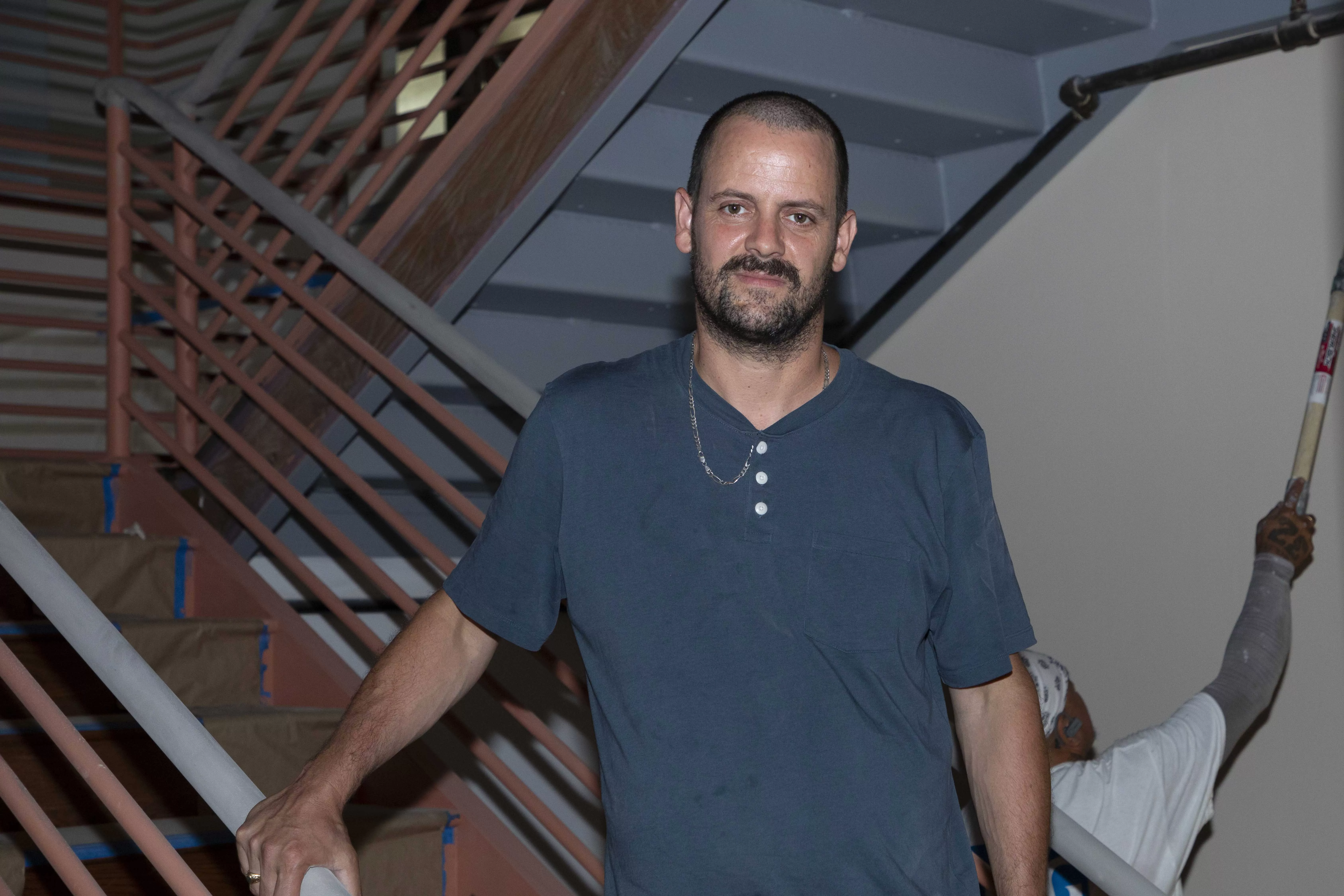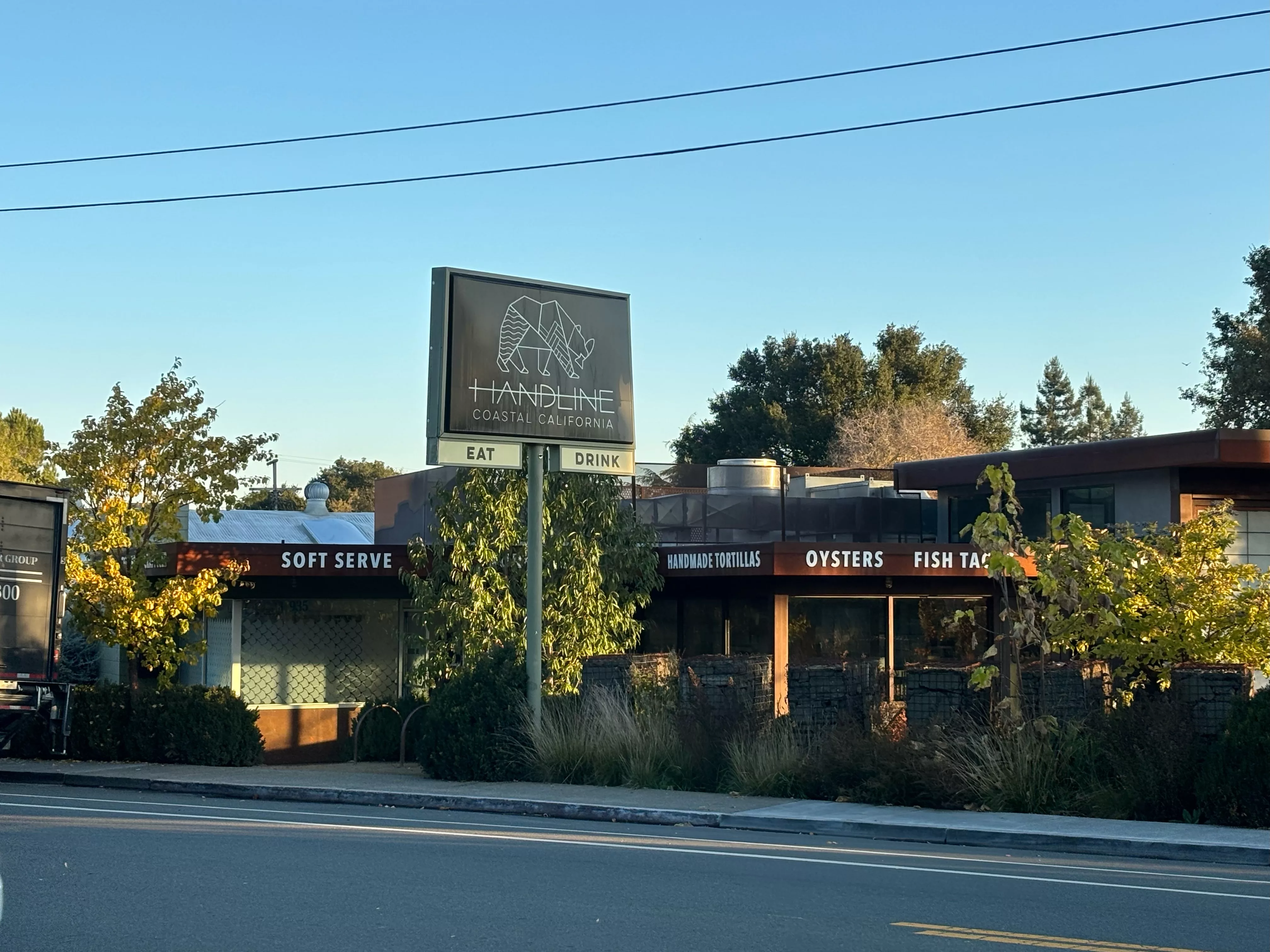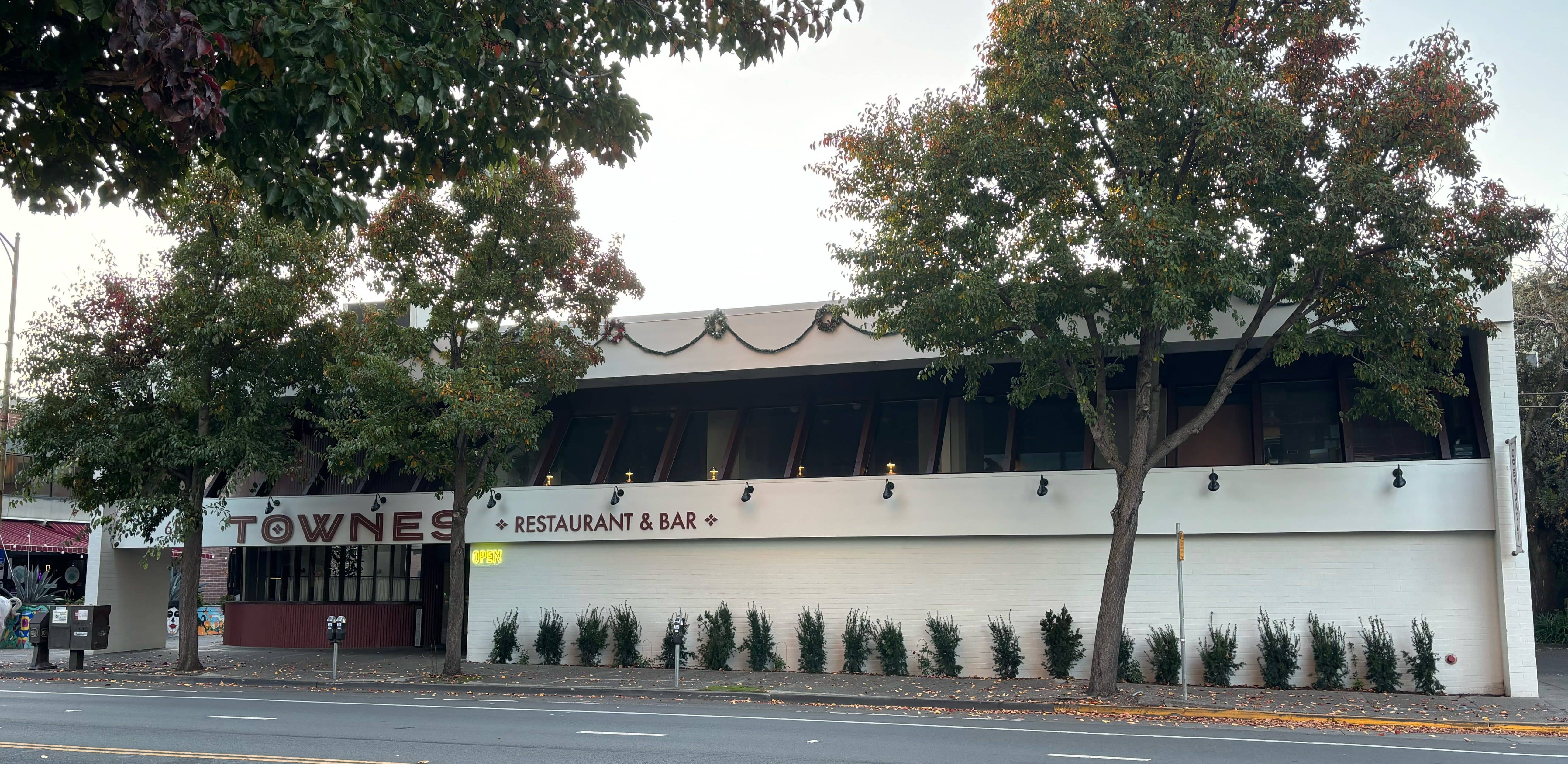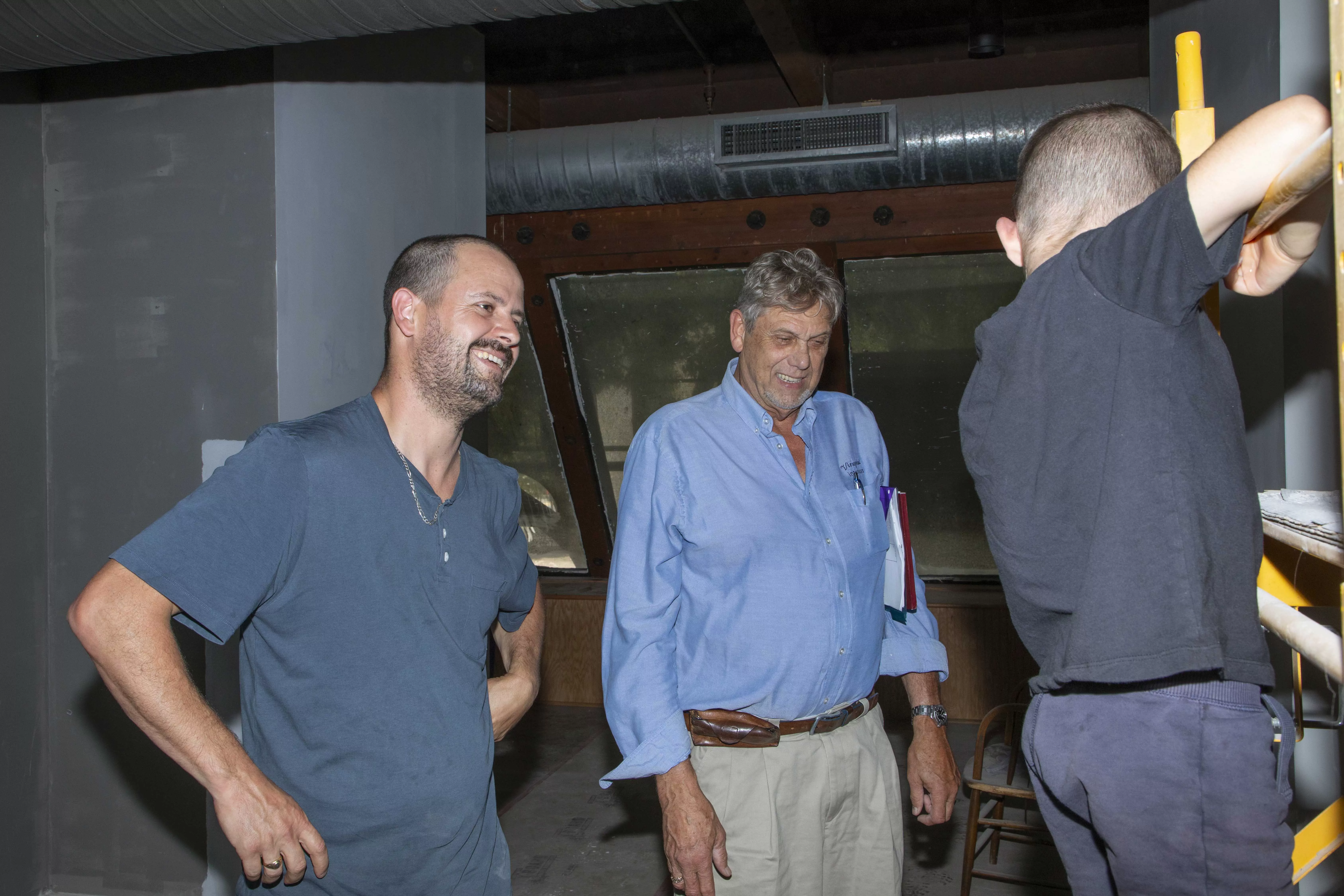
They say business is about numbers.
Revenue. Expenditures. Net profits. Quarterly losses.
But for enterprising Sonoma County restaurateur Lowell Sheldon, the numbers involved are a different matter entirely. Here are a few:
11—the number of former employees who have alleged in the media that Sheldon subjected them to a toxic work environment and some forms of harassment
6—former employees who have accused him of sexual harassment
3—restaurants Sheldon has been bought out of by former business partners due to the allegations
1—accusation of sexual assault
These are serious numbers, reflecting a catalog of allegations lobbied in the press by several women who worked in Sheldon’s restaurants Peter Lowell’s, Handline, Fern Bar and Khom Loi.
Such numbers are not the kind of measurements typically ascribed to evaluate potential business success. Yet, they were the primary factors in August of 2022 when the Sebastopol City Council considered whether to award an alcohol permit to Sheldon’s latest business venture, Piala Georgian Cuisine. After a nearly four-hour public meeting the council voted unanimously to award the license.

Some former employees and other critics of the businessman described the conditions placed upon Sheldon as a matter of public safety. Adherence to the conditions would be subject to spot checks by the Sebastopol Police Department, promised the council. And the conditions would be revisited in the fall of 2023 to consider whether they would be maintained, revised or dropped.
It’s a public shaming not seen in Sonoma County since winery owner and former-Windsor Mayor Dominic Foppoli was forced to resign following myriad accusations of drugging, assaulting and raping multiple women over a 10-year period. (The disgraced former mayor is reportedly now living in Europe with his fiancé.)
But there’s another number Sheldon himself prefers to highlight, but believes is too often ignored in his circumstances:
Zero— the number of legal judgements or criminal charges against him. (A police report from the alleged sexual assault victim was filed but later dropped.)
Sheldon says the absence of legal claims against him is evidence that, not only do his alleged indiscretions fail to reach a bar of workplace harassment—but that his accusers know this and, inspired by the effectiveness of the MeToo movement in sidelining such now-notorious figures as Harvey Weinstein, Woody Allen and others, are instead taking their allegations to a more assured arena for retribution: the court of public opinion.
Multiple news stories detailing the accusations against Sheldon have appeared in various media outlets since his former employees first started speaking out in 2021, including lengthy reports in the San Francisco Chronicle, Santa Rosa Press Democrat and the North Bay Bohemian.
Sheldon says he’s a victim of MeToo run amok and a desperate local media hungry to print anything salacious based on hearsay. If employees know their claims against an employer don’t reach a legal level of harassment to satisfy the courts, says Sheldon, “people in the MeToo movement will say, ‘Oh well… we need to take these matters into our own hands.’”
Instead of dealing with the legal system—in which there are formal avenues to have grievances evaluated—he says chafed employees decide “to make up [their own] rules—find a reporter who’s willing to believe exactly what [they] say and report exactly what [they] said.”

Jesse Hom-Dawson, former marketing communication director for Lowell’s, says during a 2019 after-hours visit to a local bar, Sheldon sat in a seat she had previously occupied and invited her to “come sit on Daddy’s lap.” That incident became the seeds for an investigation by an outside HR consultant hired by Fern Bar partners.
According to californialaborlawattorney.com, “petty slights, annoyances and isolated incidents” aren’t illegal in the eyes of the U.S. Equal Employment Opportunity Commission, the federal agency which enforces workplace rights law. Rather, it says, a hostile work environment is established when “a reasonable person would view [the situation] as intimidating, hostile or offensive” through such workplace behaviors as offensive jokes or pictures, slurs, name-calling, insults, physical assaults or threats or intimidation, among others.
Sheldon says incidents called out in the accusations against him happened over a five-to-seven-year period and have been amplified, describing some as “things that can happen and do happen all the time.”
“One of the people said I leaned over to grab a pot and I leaned up against them while working in a kitchen,” says Sheldon. “Is it an example of me not being aware of my space? Yeah. But nobody would call that sexual harassment in of itself.
“One other employee also said I walked too close to them,” he adds.
One non-workplace allegation sets a different bar—an alleged sexual assault that occurred in 2019, in which a woman, who had been briefly seeing Sheldon romantically, told the North Bay Bohemian that at the end of a date he assaulted her via forced oral copulation. Sheldon, however, refutes the narrative portrayed in the media and, in a letter to Sebastopol city officials, described the incident as “a disappointing date.”
The woman reportedly filed a report with the Sonoma County Sheriff’s Office in 2021, but ultimately decided to take no further action.
Sheldon considers the absence of criminal charges against him as a vindication of sorts—and that, coupled with no additional complaints since separating himself from his businesses over the last two years, is a sign that he should be allowed to step out of the shadows and get back to business.
Foppoli similarly uses the absence of criminal charges against him as evidence reports of his alleged sexual assaults are unfounded. However, according to a 2019 study by the School of Criminology and Justice Studies, 82% of sexual assaults reported to police never lead to arrest, thus discouraging many sexual assault survivors from seeking charges against their perpetrators.
What’s more, according to the University of Massachusetts Amherst, 99.8% of harassed workers don’t file formal charges—rendering the absence of formal workplace harassment claims a dubious barometer as to the toxicity—or lack thereof—of a workplace.

In November, his latest venture took flight—Townes Restaurant & Bar opened for casual European-style dining at the site of the former 3rd Street Aleworks in downtown Santa Rosa.
In a conversation with NorthBay biz about his hopes for reemergence, he describes the City of Sebastopol’s constraints upon him at Piala as coming from a “kangaroo court” that implemented “ludicrous policies” to limit his involvement in the restaurant. He applauds the City of Santa Rosa for showing “less bias than Sebastopol” regarding his involvement with Townes.
In letters and public commentary to the City of Sebastopol about its consideration in October about allowing Sheldon flexibility in drinking alcohol and working at Piala, his accusers warned: Beware—he has not learned his lesson.
But, as Sheldon wrote in a letter to the Sebastopol City Council in 2022 and still maintains, he believes he is innocent of all accusations of sexual harassment and assault—and is done apologizing for perceived transgressions he didn’t commit.
“I, for one, am done being ashamed. Particularly for things I have not done. In no way and in no world am I ready to fall on my sword, have my reputation raked over the coals, name smeared beyond recognition, lose my ability to start a business and provide for my family over crimes I didn’t commit or over infractions so minor, no one would ever look at them,” wrote Sheldon.
Yet many did look—from friends and coworkers of his accusers to members of the media and local public officials. And many felt what they’ve seen, heard and in some cases been subjected to bears scrutiny.
*****
Peter Lowell’s opened in 2007, marking the start of Sebastopol native Lowell Peter Sheldon’s journey into life as a restaurateur. Sheldon, then 27, felt that one of the most important aspects of running a restaurant was the community created among coworkers. The Peter Lowell’s employee handbook read, “The only way we can put ourselves in a position to make the Lowell’s experience a positive one for our customers is if we create a positive environment for ourselves first. This means treating your coworkers like teammates and, with time, like family.”
Today, reflecting back on this mentality 16 years after opening his first restaurant, Sheldon says he understands that today’s culture calls for a “very clear separation” between management and employees. “Employee comradery should be separate from management comradery,” he concedes, referring to “jokes” and socializing after work. “That wasn’t how I thought about it [at age 27],” he says. “I thought about it as a family.” He says his new understanding is partly down to his “own evolution” over time—“you become a different person, you have kids, you grow up.”
But he also credits this shift in attitudes about workplace culture to the prominence of the MeToo movement, which in 2017 cast a powerful media spotlight on the imbalance of power between workplace employees and those in authority through high-profile harassment and/or assault allegations against Harvey Weinstein, Roger Ailes, Matt Lauer, Charlie Rose, Tucker Carlson, among others.

“You shouldn’t be able to just make your own definitions of [harassment] and then have some sympathetic reporter just run with it because it’s a cultural moment,” says Sheldon about the stories from 2021 that ran in the San Francisco Chronicle and the North Bay Bohemian, and later jumped on enthusiastically by the Santa Rosa Press Democrat, which was still reeling from being scooped by the Chronicle on the Foppoli story while under the brief and rocky tenure of former editor Rick Green. Such stories detailed multiple allegations of harassment and other anecdotes of inappropriate workplace behavior levied against Sheldon. “And now for the rest of my life I have to live with these…false allegations,” Sheldon laments.
Since such damning media coverage, Sheldon has been more associated with the litany of harassment claims than for his reputation as a sustainability-minded restaurateur. Even former staff members most critical of his behavior, credit him for being a strong industry proponent of the farm-to-table ethos. Many former employees say it’s one of the reasons they were excited to join the Lowell Sheldon team in the first place.
But now, two years and multiple accusations of workplace harassment later, his reputation is in tatters. In the proclamation of innocence he wrote last year for the City of Sebastopol, Sheldon concedes he’s “no angel,” yet neither is he the “cartoonish predator [he’s] been made out to be” by former coworkers, the press and city officials. “While I am more than willing to take complete ownership of the mistakes I did make,” he says, “I resolutely refuse to take ownership of the ones I didn’t.”
*****
Over the course of multiple media accounts published first by the San Francisco Chronicle and then the North Bay Bohemian in September 2021, several former employees of Sheldon’s restaurants offered their perspective of what it was like to have Lowell Sheldon as a boss.
- Lee, who spoke to the Bohemian on a first-name-basis-only, worked briefly at Lowell’s when it opened in 2007. She recounted instances when Sheldon would offer direction on her appearance—once urging her to fix her hair to “make [herself] look prettier” and another time suggesting she wear a belt in order to show off her waistline.
- Joni Davis was a pastry chef for Lowell’s from 2015 to 2017. She told the Chronicle and Bohemian that on numerous occasions Sheldon would brush up against her while grabbing pots and pans that were close to her workstation; she maintained there was enough room for him to collect his supplies without physical contact. Another time, while fulfilling an expectation that Lowell’s employees engage in community volunteer work, she says Sheldon snapped photos of her picking satsuma plums at a local farm without her knowledge. He later texted her some of the photos, writing, “I just couldn’t help myself.” Davis also says she overheard Sheldon call employee a “f—ing retard.” Such incidents caused her to leave the company, she said.
- Leah Engel was the social media manager for several of Sheldon’s restaurants including Lowell’s, Handline and Fern Bar, from early 2015 to April of 2021. She has since become one of his fiercest critics, publicly opposing his involvement in restoring the historic Freestone Hotel near Occidental, as well as the application for an alcohol license for Piala. At a Sebastopol Planning Commission meeting regarding the license in 2022, Engel recounted a time when an underage coworker was given an alcoholic drink at the end of a shift—when she alerted Sheldon and other managers that this was illegal, she says they responded that she was overreacting.
- Maddy Miller worked at Lowell’s from July 2016 to February 2018. Miller has described an overly familiar relationship Sheldon tried to foster with staff—regularly drinking with employees after shifts and engaging in dubious manager/employee repartee. One time, she told the Bohemian, during a drinking outing with staff, Sheldon allegedly asked a group of female employees whether they washed their genitals with soap. Miller said she believes he thrived on “being provocative” and making people “a little bit uncomfortable.” As she told both the Chronicle and Bohemian, in 2017 Sheldon purchased tickets to a SZA concert in San Francisco for himself, Miller and two other female employees. At the show he purchased alcoholic beverages for the group—one of the women was under 21, according to Miller—and later, at the urging of one of the women, accompanied them to a strip club, where Sheldon paid their cover charges and dispensed cash for tipping dancers. Miller recalled feeling uneasy—that she shouldn’t be having this experience with her boss.
- Aaron Young worked at Handline for three months in 2016. She told the Chronicle that Sheldon would rub her shoulders and make comments about her appearance. She said his “subtle sexualized interactions with employees” set the tone for the overall atmosphere at Handline. After quitting the restaurant, she and Miller ran into Sheldon at a bar where she says he forcibly kissed her and, on a separate occasion, she and Miller encountered Sheldon at a charity event, after which in a shared car ride home he twice tried to slide his hand under her dress.
- Jesse Hom-Dawson, marketing and communications director for Lowell’s, Handline and Fern Bar from 2018 to 2020, is among multiple former staff who say they regularly witnessed Sheldon consuming illicit drugs at the restaurants—cocaine and psychedelics, according to the media reports. During a 2019 staff outing to a local bar, Hom-Dawson was returning to a seat she had occupied to find Sheldon in her chair and, as she approached, he invited her to, “Come sit on Daddy’s lap.” Fern Bar assistant manager Alexandra Lopez witnessed the “Daddy’s lap” comment and reported the incident in a letter to Sheldon and other restaurant partners, alleging it was part of a repeated abuse of Sheldon’s “status and power as a business owner” that allowed him to “sexually harass the women who work under you—myself included—and mistreat the men who work for you.”
In response to Hom-Dawson’s letter, the partners at Fern Bar hired an HR firm to conduct an investigation, which resulted in Sheldon being required to undergo in-depth harassment training and barring him from overseeing employees for a year. Business partners would eventually buy him out of both Fern Bar and, later, Khom Loi, a Sebastopol Thai restaurant Sheldon and his partners opened in 2021. Sheldon would also be released by Handline the same year.
Sheldon bristles at the idea he’s somehow responsible for staff members willingly accompanying him to a strip club. “If you make a choice 10 years ago to go to a strip club because you’re all friendly or go to a concert in San Francisco—and you didn’t like that, then you don’t go to a strip club again,” Sheldon told NorthBay biz.
The “Daddy’s lap” comment, he concedes, was out of line. “A crude and very regretful comment to be sure,” says Sheldon. “But on the whole, [it’s] a comment too feeble to hang an entire sexual harassment [allegation] on.”
While Sheldon refutes that his management mistakes add up to a pattern of harassment, he concedes it casts a pall over “a messy time” for Peter Lowell’s. “The intermingling of personal life and professional life—there was no separation there,” he told NorthBay biz. “But that’s just much different than ‘serial sexual harasser’—which sounds more interesting in the media.”
Continues Sheldon: “But that’s the headline every time thereafter: Accused of sexual harassment. If you don’t have that then it’s just like, a story of a restaurant that’s been closed for five years and everyone partied together.”
Sheldon describes being labeled “a serial sexual harasser” as a “baseline” for what the media seeks in such stories. “Obviously, sexual assault is the next level up,” he says.
“For it to have the teeth of a story, it has to be that.”
*****
In September 2021, a woman filed a police report alleging she had been sexually assaulted by Lowell Sheldon.
Referred to as Jane Doe in a story that month in the Bohemian, the unnamed accuser had provided a detailed report of her allegation to the Sonoma County Sheriff’s Office. According to Doe, she and Sheldon met through the dating app Tinder in the summer of 2019 and went on between six to nine dates; during that time, she said, they had one consensual sexual encounter. Their relationship abated toward the end of the summer, but they reconnected two months later in November, around the time Peter Lowell’s restaurant officially closed.
Sheldon invited Jane Doe to his home for dinner. Doe reported that throughout the evening Sheldon opened several bottles of wine and continued to fill her glass. Doe told the Bohemian that, as the evening progressed, she realized she had had too much to drink and knew that she did not want to be intimate with Sheldon. She suggested that they head to a bar where a friend was DJing; afterward a friend invited them back to their house. Initially Sheldon agreed to go to the friend’s house, but instead drove Jane Doe back to his place.
Doe says everything happened quickly from there. According to the allegation, Doe was sitting on the couch drinking water when Sheldon began kissing her. Doe says she still felt inebriated and was trying to move away from him. Next, she alleges, Sheldon got on top of her and put his hands in her pants. Next, he stood up, unbuttoned his trousers and, without her consent, put his penis in Doe’s mouth and copulated.
Doe described herself in the story as feeling disgusted and violated. She said she disclosed the incident to two people at the time—disclosures confirmed by the Bohemian—but otherwise tried “not to think about it.” It wasn’t until the litany of sexual assault allegations came out against former Windsor Mayor Dominic Foppoli in April of 2021 that Doe recognized similarities with her situation and considered reporting her encounter with Sheldon to the Sheriff’s Office, according to the story.
Later that year she would file the police report but ultimately decided she didn’t want to be involved in a criminal investigation.
*****
“Every one of those people I had good relationships with at one time or another,” Sheldon tells NorthBay biz about his accusers.
“I was a decent and fair boss,” he says.
So then how does he reconcile such initial “good relationships” with the laundry list of accusations that have since been levied over transgressions he frames as minor or fabricated?
As Sheldon explained in his written plea to the Sebastopol City Council last year: “To get to the bottom of everything that has happened, I have to recognize that there’s another, truer story beneath this one.”
In 2016, Sheldon opened the Sebastopol restaurant, Handline, with his then-romantic partner Natalie Goble, who had worked with him at several locations, including Lowell’s.
“While I was with my partner, who was my partner both in life and in business, I had an affair,” continued Sheldon. “And to make matters worse, this affair was with an employee.
“We all know the damage that affairs lay to bear.”

The affair with the employee lasted about two years and, during that time, the woman was promoted to a management position. When the affair eventually came to light among the wider staff, the woman left her position at the restaurant—but Sheldon believes the damage was done. “The aftershock of this seismic event also rippled out underground to shake the foundations of our business, and the employees felt this,” wrote Sheldon. “It became the first brick laid that redefined how the employees viewed me.”
Sheldon believes the discovery of the affair was the catalyst for all the sexual harassment allegations that have headed his way. “Rightly so, many of the staff had a strong urge to protect [Goble]. I suspect that this protective impulse, coupled with the burgeoning MeToo movement, created the perfect conditions to day-by-day deform me into a sexual predator.”
He continued: The affair and the sexual harassment allegations “got coiled together… MeToo because a catchall term for ‘men doing bad things to women.’”
Looking back, he believes the affair fostered a growing contempt for him among staff and the “Daddy’s lap” comment he made the following year was the straw that broke the camel’s back. “If employees had been quietly simmering with suspicion and contempt, that comment was the boil over,” he wrote to the council. “Anyone had the green light now to… not only skewer me, but revise history with abandon.
“Any and all stories [were] welcome, however distorted, untruthful or self-serving.”
*****
Despite the allegations against him, Sheldon has found willing business partners and forged ahead with new projects. In addition to partnering in Piala, the Georgian-cuisine spot opened in November of last year, and the recently opened Townes, he is also partnering in the restoration of the Freestone Hotel in Sebastopol.
Still, the allegations have continued to dog him in the strict conditions placed upon him by the City of Sebastopol in its approval of the alcohol license at Piala—restrictions he’s spent recent weeks lobbying to have removed.
In her appeal of the city’s initial approval of the license, Hom-Dawson last year wrote: “The damning allegations against Lowell Sheldon have been printed in multiple news sources and been verified by multiple fact checkers. There is also a police report detailing Sheldon’s assault of a woman while he was under the influence. I am not here to convince you that Sheldon is ‘detrimental to the health, safety, peace, morals, comfort and general welfare of our community.’ This determination is clear…”
Frank Dice III also commented at that hearing on the appeal; he was the former lead bartender at Underwood Bar & Bistro in Graton, north of Sebastopol. Dice described to the council how Sheldon frequented Underwood during his shifts and that at one point in 2013 was temporarily refused service, although not formally barred. “I’ve been in the restaurant/bar/winery business since 1991 and Lowell Sheldon remains one of the most disreputable individuals I have ever come across,” Dice said in the meeting.

Sebastopol resident Anna Frattolillo, a longtime former customer of Lowell’s, told the Sebastopol City Council that her initial assumption that Sheldon was the owner of the business was based on her observing his “posture, sense of entitlement and predatory energy.”
Kathryn M. Fong, meanwhile, said at the meeting that the “numerous” allegations coupled with Sheldon’s “own admission of ‘bad behavior’ reflect the inappropriateness of this individual’s involvement with establishments serving alcohol.”
Several supporters of Sheldon also spoke or submitted testimonials at that meeting. One woman, who didn’t provide a name, but said she was 37, questioned the agendas of his accusers. “The accusers, in my opinion, feel power hungry and blindly driven to destroy Lowell at any cost and without any recognition of the amazing things he has done for his community or recognition for their own part in this story.”
Oliver Sheldon, Lowell’s brother, also came to his sibling’s support, saying, “[Lowell] can occasionally become stressed out, overwhelmed or irritable and inadvertently make others feel uncomfortable, offended or bad—events which I know he always deeply regrets, introspects on and attempts to learn from.”
Sebastopol resident Molly J. Martin wrote to the council as a friend of Sheldon. “I also know Lowell to be flawed,” she said. “I was upset by the allegations, and in no way do I wish to minimize the experience of those accusing him.” She said she believes there should be consequences for treating people “poorly,” but that Sheldon suffered those consequences when he was divested from the businesses he built. “Lowell continues to experience loss, both personal and professional, as he faces this reckoning,” she said.
*****
Expectations for workplace professionalism and behavioral standards have evolved by leaps and bounds in the past decade—improving equity in hiring, career advancement, cultural expectations and renumeration—though HR experts will concede the American workplace still has a long way to go in efforts to achieve true equity. Training for employees and managers in diversity, equity, inclusion and belonging (DEIB) is generally available on digital platforms at a variety of cost levels. That said, robust human resources departments are still a luxury generally reserved for larger companies with the necessary means to fund them.
“Ninety-nine percent of businesses don’t have an HR department, so I think it’s a false narrative,” Sheldon says in response to the suggestion a human resources presence could have prevented the many problems at Lowell’s. In his letter to the City of Sebastopol, Sheldon refutes the idea that a power dynamic “underpins each and every interaction between… boss and employee.” Instead of going to the media, unhappy employees “could have chosen to have straightforward conversations” with him about their grievances or “could have chosen to litigate those accusations in our robust legal system.”
“Was I always a great boss, each and every day, for 12 years? No,” wrote Sheldon. “But my deficiencies as a boss never overlapped with abusing my power.” Instead, wrote Sheldon, it was his status as “the boss” that left him vulnerable and “targeted.”
“In this cultural paradigm, having ‘power’ alone is as good as an indictment,” he asserted.
When NorthBay biz reached out to local human resources consultants for comment, the response was that the type of workplace culture fostered at Lowell’s was virtually the opposite from management best practices.
Brenda Gilchrist, cofounding partner of the HR Matrix in Santa Rosa, said in the event of “several harassment claims,” a company should embark on a thorough investigation to understand the circumstances. “If it’s determined that harassment occurred… we may recommend appropriate corrective action with training and potential termination of the person(s) that demonstrated inappropriate actions, particularly behavior that is deemed illegal.”
Francisco Barbosa, an HR manager in Napa whose clients include restaurants, stresses that just because there is a claim that warrants investigation does not mean the accused is guilty of sexual harassment. “There is a due process we must follow,” he says.
Still, he says he would be “concerned” if there were multiple reports of sexual harassment in one location. “My first comment to the restaurateur would be—do you have vast amounts of money to give away for free?” he says, about such a situation’s potential for litigation.
Adds Barbosa: “If you have several sexual harassment claims, you should not be running a restaurant or any company that employs staff.”
Barbosa says he has seen “accusations that have been exaggerated a bit to get attention because [the accuser] felt they were not being heard or included as part of a group.” But to him the MeToo movement has brought needed inroads into how workplace harassment is viewed.
“At the beginning of the movement there was an overabundance of caution, and everything was being investigated,” he says. “It was exhaustive—but it did bring about positive change in how we address any claim.”
*****
On Oct. 24, the Sebastopol Planning Commission considered Sheldon’s request to have the Piala alcohol-permit restrictions placed upon him either lifted or loosened—specifically to allow him to resume drinking alcohol on the premises and fill in as manager when co-owner Jeff Berlin takes a scheduled vacation or calls in sick.
At the meeting, Sheldon remained defiant, telling the commission the City of Sebastopol “has no business regulating the micro-operations of its businesses.” He reminded the commission he has neither been arrested nor convicted of any crimes and positioned himself as a victim of “salacious stories from a group who [has] learned to hate me.”
He urged the commission to envision an alternate reality in which his situation was unattached to “a social movement called MeToo,” which he said inspires “all liberal minds to simply believe [alleged victims].”
Concluded Sheldon: “This is the core principle of the MeToo movement: Accuse people of the worst, knowing that you don’t need to prove anything. And the impact will be lasting. Going down my line of accusers, this is true. While the accusations lobbed out and the affects have been lasting—but each and every time the exaggerations are profound, and the lies are plentiful.”
Following his comments, Sebastopol Planning Commissioners professed their dismay at his remarks.
Commissioner Deborah Burnes described herself as “gobsmacked” by his comments; Commissioner Paul Fritz was “disturbed.” Commission Chair Evert Fernandez asked rhetorically if he’d feel comfortable having his daughter work at a restaurant run by Sheldon. “No, I would not,” he said.

“He doesn’t seem to recognize what has been brought up here,” Fernandez said about the litany of accusations. “In his mind he’s not done anything wrong.”
Still, the commissioners agreed it gave them no joy that City of Sebastopol alcohol-permit bylaws bestow upon them the unique responsibility of weighing whether the granting of an alcohol permit will adversely affect “the health, safety or welfare of area residents.”
Fritz advised Sheldon to speak “as little as possible.”
“Because you don’t do yourself any favors when you speak in public,” he said.
Burnes said she wasn’t ready to entertain any laxing of the restrictions. “[Sheldon] was literally taking away the whole MeToo movement that women have spent so many years trying to be heard,” said Burnes.
Addressing Sheldon, she asked: “Do you realize how many [women] out of 10 have been sexually assaulted in America? It is an alarming number.”
Continued Burnes: “To take on MeToo… I don’t know if you get it, I don’t know if you understand. [It] wasn’t one person with an accusation, there were many, many, many [staff] members.”
Engel, a fierce opponent to any loosening of restrictions upon Sheldon in the alcohol permit, did not attend the hearing in person, and declined further comment following meeting. She instead referred NBb to a letter she submitted to the commissioners in October urging them to “believe the victims of your community.”
“The fact that many of [the abuses] were not reported to the police, does not mean it wasn’t abuse,” wrote Engel. “The fact that Sheldon believes he did nothing wrong and crossed no lines, does not mean it wasn’t harassment.”
She predicted Sheldon was merely “biding his time” in the hopes the commission will believe he’s evolved or forget “the mountains of pain” he has caused.
Cautioned Engel: “This is not a changed man.”
*****
In the end, the commission proposed to amend the permit to allow Sheldon to consume alcohol at Piala, but only in the presence of business partner Jeff Berlin.
The motion was approved by the commission by a vote of 3-1. Most of the original restrictions upon Sheldon were kept in place, including:
The number of months the alcohol-permit restrictions will continue before they return to city officials for review: 12.
The number of employees of which Sheldon can be involved in hiring, training, management, supervision, review, formal discipline or termination: Zero.
The number of employees allowed on Piala premises when Sheldon is drinking: Zero.
They say business is about numbers. Revenue. Expenditures. Net profits. Quarterly losses.
But for Sonoma County restaurateur Lowell Sheldon, the numbers involved are a different matter entirely.



